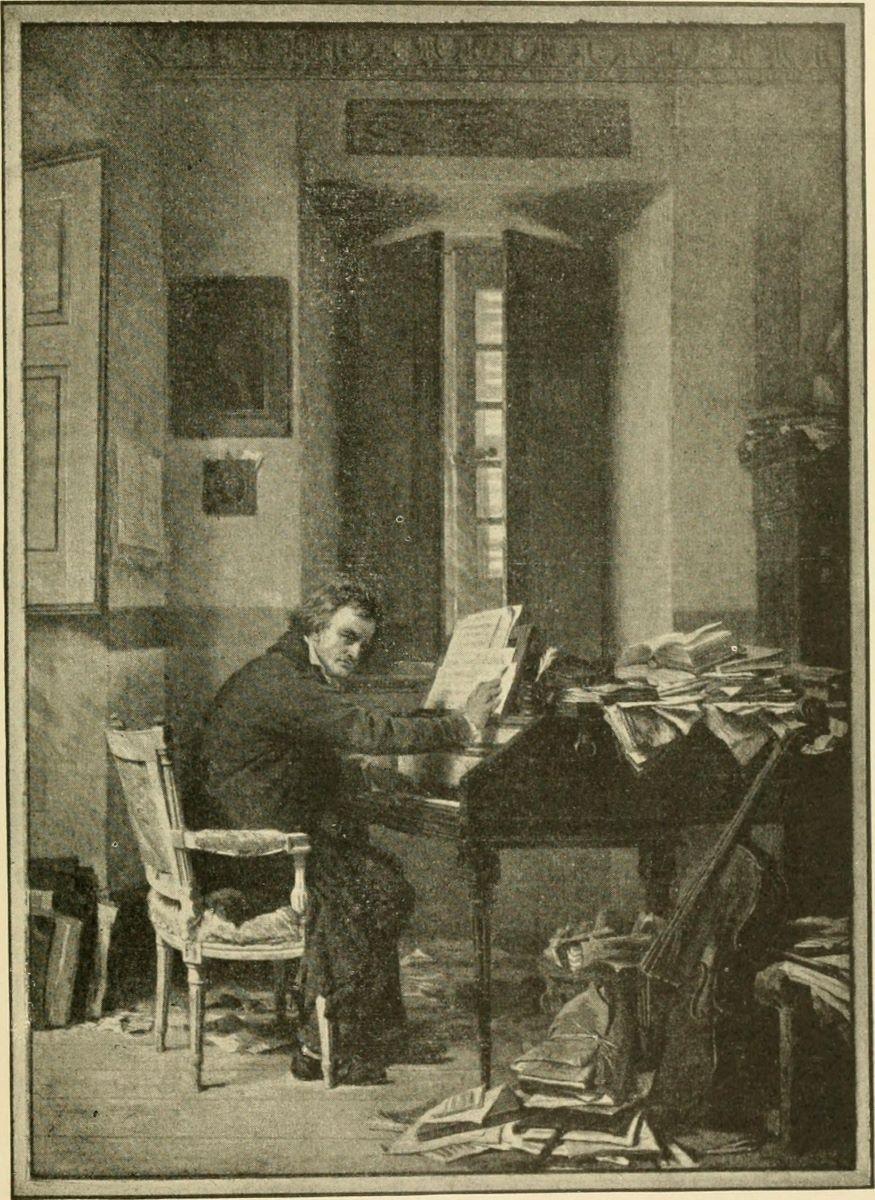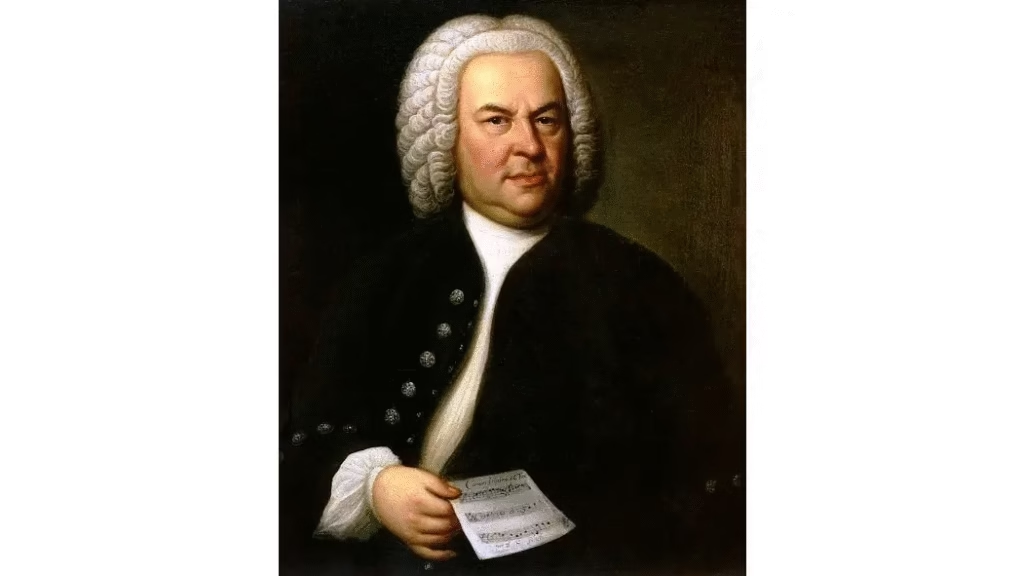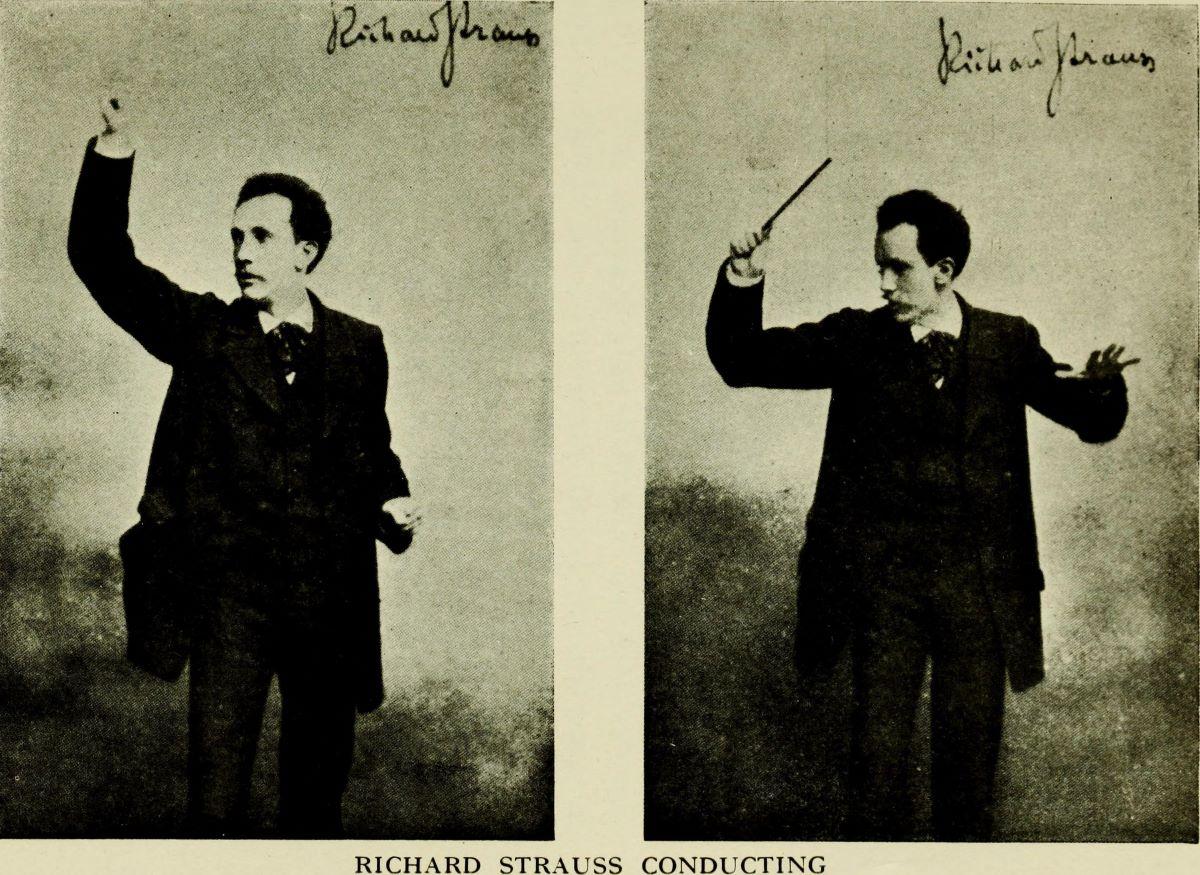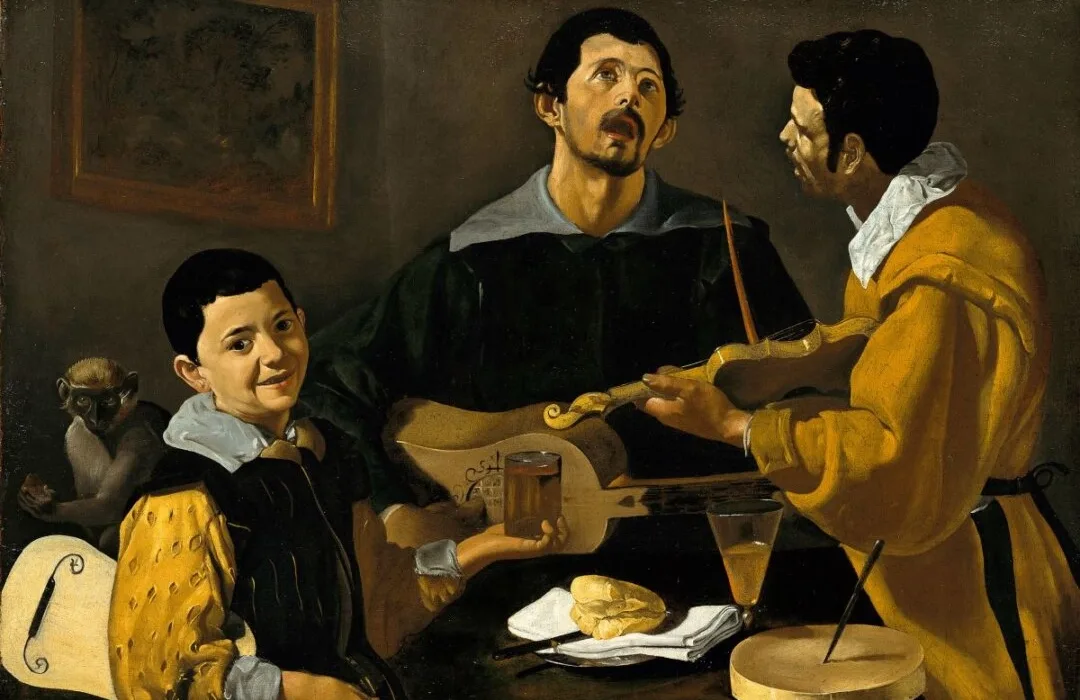“The Three Musicians” by Diego Velázquez. Public Domain
Music masters like Bach, Schubert, Schumann, and Strauss infused this esoteric ingredient to create their profound musical works.
The things that are dearest and most real to us are beyond words. Who can define or describe life, love, or beauty, but who can deny their existence? Most enigmatic of all is the soul.
A definition or a description of “soul” is impossible, but the attempts of our poets and composers, seem more successful than those of our scientists and philosophers. Virginia Woolf wrote in her story “A Summing Up” that “[Sasha] was conscious of a movement within her of some creature beating … about her and trying to escape which she called the soul.” Perhaps we can do no better than that.
When even the best words fail, music sometimes carries us further. One thinks of Johann Sebastian Bach’s suites for unaccompanied violin, or Ludwig van Beethoven’s dialogues between the soul and its maker that we hear in the slow movements of his late piano sonatas and string quartets.

“Ludwig van Beethoven in His Study,” from a painting by Carl Schloesser. Public Domain
When, however, words fall into alliance with the music of Bach or Franz Schubert, wonder comes, clarity comes, and, at least for a moment, we are given a view of a higher world that we instinctively know has something to do with what we call our soul.
From Bach to Strauss

Baroque composer Johann Sebastian Bach, 1746, by Elias Gotlob Houssmann. Public Domain
This mysterious being seems to have an urgent desire to celebrate its creator: “My soul praises and extols God’s grace” Bach writes. The beautiful, lyrical contours of the melody join the sure and steady steps of the rhythm, as if someone were walking with an uplifted heart; words and musical phrases are repeated, often echoed by a violin, a flute, an oboe. These are happy recurring thoughts of a life built on faith.
The soul is described by the venerable poet Johann Wolfgang von Goethe in his “Song of the Spirits over the Waters”:
The soul of man,
Is like water.
From heaven it comes,
To heaven ascends,
And, returning again
To earth,
It is ever changing. [writer’s translation]
As a wave, it crashes against the cliffs, as a lake it is so calm, so quiet that it reflects the stars, as a river, it flows gently through the green valleys. “Soul of man,/ How like the waters,/ Destiny of man,/ How like the wind!”

Goethe was so impressed by the sight of the Staubbach Falls that it inspired him to compose the “Song of the Spirits Over the Waters.” SerienGeck/CC BY-SA 4.0
The musical setting of Schubert deepens one’s impression of Goethe’s words. Rain, seas, and rivers reveal themselves in the rich sounds of the lower strings. There are no violins, only violas, cellos, and double basses. A chorus of men, the spirits over the water, hover above the strings and sing their song.
The soul often seems most apparent to us when we are confronted with nature’s astonishing beauty. In Robert Schumann’s song “Mondnacht,” (“Moonlit Night”), a man stands in a field watching the stars: “It seemed as if the heavens/ Had silently kissed the earth.” The ethereal opening piano phrase descends to meet a vocal line that rises to greet it. When they unite, the poet sings “and my soul spread/ Wide its wings,/ flew upward through silent lands/ as if it were returning home.”
The soul might reveal itself as well at the end of a life well lived, when a profound drowsiness settles over it, weary from the world’s comings and goings. “Beim Schlaffgehen,” (“Time to Sleep”), one of Richard Strauss’s “Four Last Songs,” captures the beauty and mystery of that moment: “Now the day has tired me./ … Hands, give up all your work,/ Mind, forget all your thoughts./ All my being/ longs to sink into slumber.”
Words fall silent for an interval; a solo violin, is given the task of describing the soul as it leaves our world. Surely in all Western music, this is one of the most sublime passages. The voice resumes, “and the soul, unwitnessed,/ flies into the starry night,/ into thousand-faceted life.”
The Soul Lives On

Richard Strauss conducting, taken from the book, “The Orchestra and Its Instruments.” Public Domain
This song, written shortly after World War II, is of great significance. It is an echo of the golden age of song which flourished in German culture during the 18th and 19th centuries, the zenith period of our Western musical tradition.
Why was it so short-lived? Part of the answer lies in the fact that the notion, the subject of soul was abandoned as the years passed. It is nowhere to be found in the highly publicized mainstream productions of today. The public, often stupefied by entertainment disguised as art, has lost interest in matters as esoteric as the soul. It is buried in the noise of materialism and the volatile, scientific and philosophical whims of our times.
Still, the soul is there. When, on occasion, the lights of our cities go out, the stars instantly appear, and we realize that those brilliant stars have been there all along. When the mind is shielded from the glare of modern life—city life, television life, iPhone life—the soul, the timeless, eternal soul, makes itself known. It will always be as it has always been, when there are no iPhones, and even when the sun is extinguished.
From The Epoch Times
✉️ Stay Connected — Subscribe for Weekly Updates
Discover timeless stories, practical wisdom, and beautiful culture — delivered straight to your inbox.
*We only share valuable insights — no spam, ever.







tlovertonet
Tháng 7 29, 2025Thank you for the sensible critique. Me & my neighbor were just preparing to do some research about this. We got a grab a book from our local library but I think I learned more clear from this post. I am very glad to see such great information being shared freely out there.
John Son
Tháng 7 29, 2025thank you so much